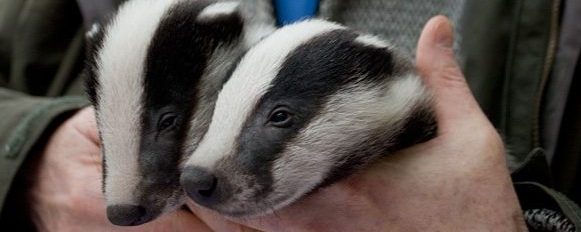
On 30th July, Baroness Bennett of Manor Castle Green received a reply to her written Parliamentary Question:
“To ask His Majesty’s Government what assessment they have made of the paper by Torgerson and others published in the Royal Society Open Journal on 11 June claiming that other studies of badger culls contain methodological weaknesses; and what plans they have, if any, to ensure that the Cornwall Badger Vaccination Pilot has a peer-reviewed protocol before any work can continue.”
The reply from Sue Hayman was as follows:
“Work has started on a comprehensive new bovine TB strategy for England, to continue to drive down disease rates to save cattle and farmers’ livelihoods and end the badger cull by the end of this Parliament.
The evidence surrounding bovine TB control, including recent studies such as the paper by Torgerson, is being independently reviewed by a panel of experts led by Professor Sir Charles Godfray, which the Government has reconvened.
Unlike previous badger culling studies, the Cornwall Badger Project is focused on testing different methods of delivering badger vaccination, rather than evaluating the impact on bovine TB in cattle. The project is being delivered by the NFU in partnership with the Zoological Society of London, who have a track record of publishing peer-reviewed research on the subject of badger vaccination. The project will continue to be regularly reviewed by Defra as it progresses.”


The following day July 31st, an article appeared in The Guardian newspaper entitled “Farmers and scientists join forces in Cornwall to vaccinate badgers against TB”. The article quotes one of the researchers involved as saying:
“By working together to compare different approaches, we can develop a shared understanding of the evidence and use it to identify TB control solutions which are effective and sustainable.”
And it quotes a farmer as saying:
“What we hope to ultimately get out of [the project] is whether [badger vaccination] affects the cattle levels of TB – that remains to be seen, but I think it’s well worth doing.”
So Sue Hayman is telling us that “the Cornwall Badger Project is focused on testing different methods of delivering badger vaccination, rather than evaluating the impact on bovine TB in cattle”. Meanwhile, the researcher and farmer participant infer that the results will give an insight into the control of bovine TB in cattle because it seems they think or have been told that disease benefit in cattle is ‘likely’? This approach is highly questionable. The Government statement implies that three or four years down the road, we will still have no evidence of whether badger vaccination effects TB in cattle one jot.
Importantly, the PQ asked if any analytical protocol for the research and subsequent analysis would be published before the work starts to avoid a repeat of the problems of the Randomised Badger Culling Trial (RBCT) (see here). But this was not answered.
The Guardian article states:
“The project will assess three vaccination approaches to determine which works best: annual vaccination over four years, vaccination every other year or reactive vaccination based on TB infection on farms.”
But this is a three year project? Is ‘working best’ just a reference to a rough idea of TB prevalence change in badgers using a difficult test ?
The NFU said previously in their January project announcement and in defiance of Government policy:
“The NFU is clear that badger vaccination cannot be used as a direct alternative to culling and evidence is needed to give the NFU and wider farming industry the confidence that badger vaccination has any effect in reducing bTB in cattle, before proving its ability for delivery at the necessary scale, cost-effectively.”
So in summary, NFU are being given around £1.3 MN to see if farmers in some apparently badger-friendly areas of Cornwall can vaccinate badgers with a bit of training, and Sue Hayman says, quite rightly, that it will shed no light on whether vaccination is of any value in controlling bTB in cattle. In contradiction, the researcher quoted suggests the work will identify TB control solutions which are effective and sustainable. So why, in the midst of an expensive damaging disease crisis are the NFU being set up to spend public money on something that cannot deliver their stated needs? Do ordinary farmers in Cornwall know this? – apparently not according to what those involved are saying.
In any case the public, or at least independent specialists, should have access to the project design and the analytical protocol before work starts, whatever it is actually doing. For example if there are three treatment areas, will there be treatment ‘control’ areas and what proportion of badgers will be vaccinated, and what are the expected sample sizes?
Of course since the publication of Torgerson et al. papers (2024 & 2025), there is no sound scientific basis to continue with any badger culling or vaccination for bTB control. The RBCT did not show any benefit from badger culling, so any benefit from badger vaccination is unlikely. Cattle measures alone on the other hand, are proven to be effective. Are public funds being frittered again at a time when decisive action to protect badgers, cows and farmers remains long overdue and overlooked?
Discover more from The Badger Crowd - standing up for badgers
Subscribe to get the latest posts sent to your email.

